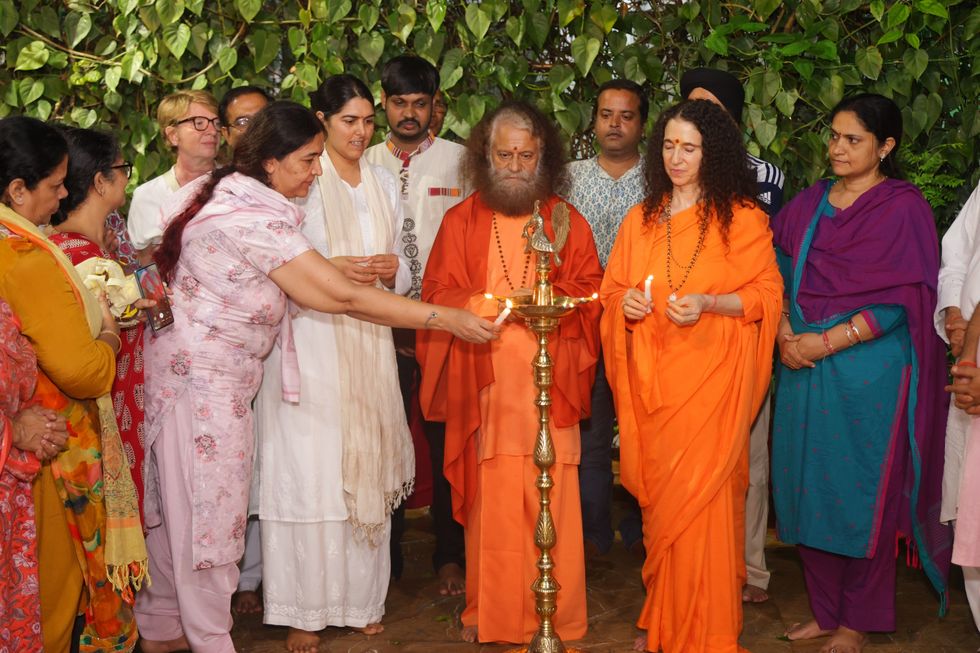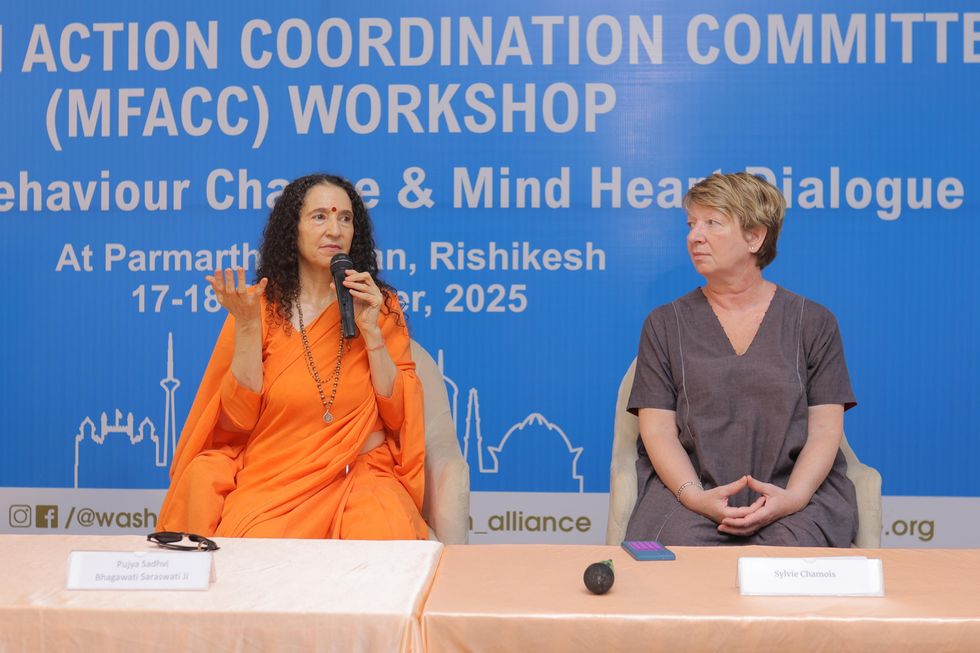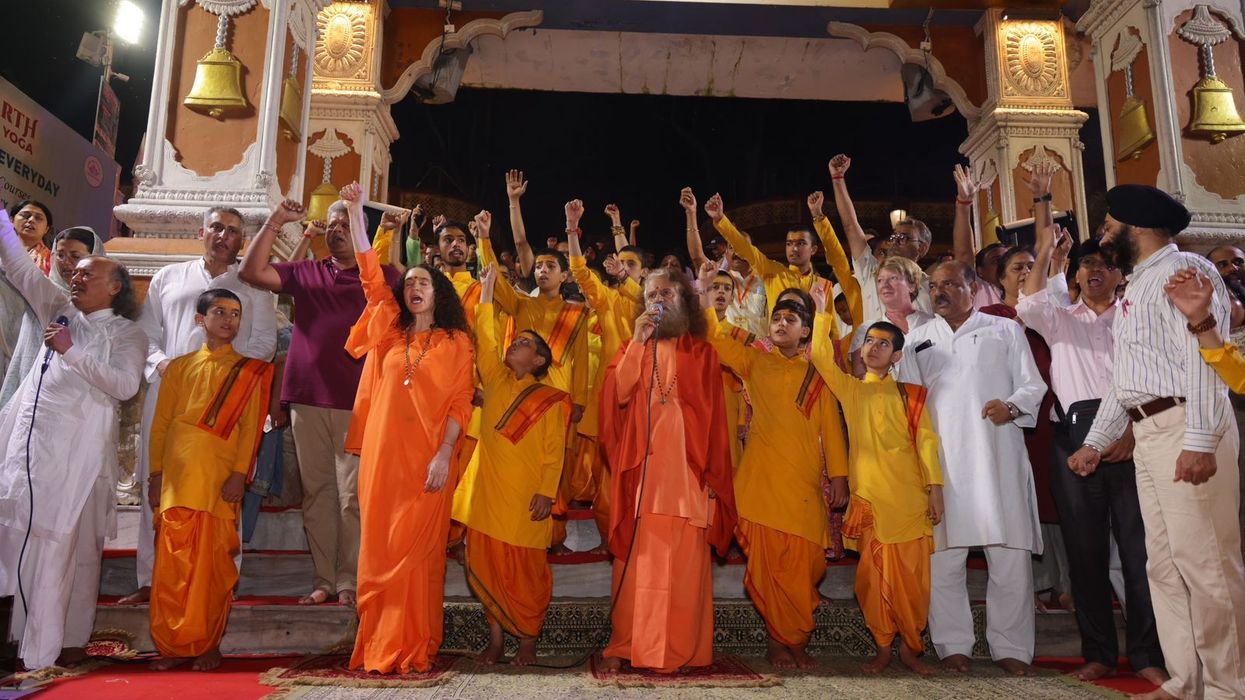Highlights
- Two-day Multi-Faith Advisory Workshop (MFACC) held at Parmarth Niketan, Rishikesh.
- Organised by the Global Interfaith WASH Alliance in partnership with UNICEF India.
- Faith leaders and development partners united for children’s health, nutrition, and climate resilience.
- Occasion coincided with Vishwakarma Jayanti and Prime Minister Modi’s 75th birthday.
- Collective commitment made towards dialogue, compassion, and sustainable development.
Workshop overview
A two-day workshop of the Multi-Faith Action Coordinating Committee (MFACC) concluded at Parmarth Niketan, Rishikesh, on 17–18 September. The gathering marked the 75th birthday of Prime Minister Narendra Modi and coincided with Vishwakarma Jayanti, making the event symbolically significant.
Convened by the Global Interfaith WASH Alliance (GIWA) with UNICEF India, the workshop brought together diverse faith leaders, interreligious councils, civil society organisations, and academic institutions. Participants included representatives from Parmarth Niketan, the Brahma Kumaris, the Swaminarayan Gurukul Parivar, the Global Peace Foundation, Caritas India, Harijan Sevak Sangh, Delhi Gurudwara Bangla Sahib, Punjab University, and the Divine Shakti Foundation, among others.
The forum underscored the Indian value of Vasudhaiva Kutumbakam – the world is one family – while addressing priorities such as child nutrition, education, health, and climate resilience.

Symbolism and timing
The inauguration coincided with Vishwakarma Jayanti, a festival that honours artisans and their tools. Drawing from this symbolism, organisers emphasised dialogue as the most powerful tool for faith leaders to unite communities.
The opening day also marked Prime Minister Modi’s 75th birthday, where participants offered their commitment to building a resilient, sustainable, and compassionate India as a collective gift to the nation’s leader.
Focus on climate and community resilience
At a time when severe floods have impacted parts of the Himalayas and Punjab, the workshop rededicated itself to climate action. Leaders pledged to combine prayer with practical solutions, reinforcing their responsibility towards protecting the planet and future generations.

Voices from the gathering
Pujya Swami Chidanand Saraswati Ji, Co-Founder and Chair of GIWA, highlighted dialogue as the faith leaders’ greatest tool, saying that a “healthy, harmonious nation” would be the most meaningful tribute to the Prime Minister.
Pujya Sadhvi Bhagawati Saraswati Ji, Secretary-General of GIWA, described MFACC as a national advisory group where faith leaders could guide government and partners through “Mind-Heart Dialogue.” She emphasised vegetarianism as a powerful step towards better nutrition, planetary health, and compassionate living.
Sylvie Chamois, Nutrition Specialist at UNICEF India, pointed out that faith leaders hold deep trust within communities. She stressed that “good nutrition begins at home” through practices such as exclusive breastfeeding, timely introduction of diverse foods, and greater attention to the nutritional needs of women and girls.
Two-day agenda
The workshop agenda combined prayer, dialogue, and strategy development.
- Day 1: Inaugural blessings, an introduction to MFACC’s guiding principles, and plenary sessions on the role of faith in health, education, and climate resilience.
- Day 2: Training on social and behaviour change communication, mapping community assets, and developing joint action plans. The workshop closed with collective commitments.
Nutrition and lifestyle messages
A special session on family health and nutrition shared six core messages for communities:
- Eat home-cooked, seasonal food; avoid packaged or sugary items.
- Share meals together, ensuring women and girls are not left behind.
- Exclusive breastfeeding for the first six months.
- Introduce soft, home-cooked foods alongside breastmilk from six months.
- Provide special diets for undernourished children, teenagers, and mothers.
- Encourage daily play, exercise, and reduced screen time.
About MFACC
The Multi-Faith Action Coordinating Committee is a voluntary advisory body established by GIWA and UNICEF India. It functions as a think tank and coordination platform, combining spiritual wisdom with technical expertise to advance national development goals.
MFACC’s objectives include:
- Advising government and partners on integrating faith perspectives into policy.
- Supporting collective action and joint planning by diverse faith organisations.
- Promoting inclusion of underrepresented faith voices.
- Mobilising communities to reach vulnerable populations.
- Building evidence on culturally grounded approaches for behaviour change.





